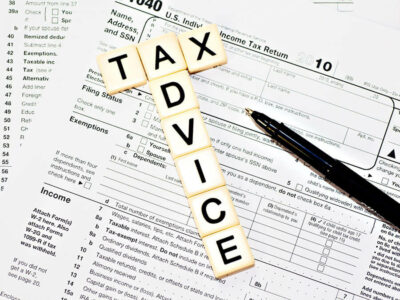
The second section, Depreciable Assets Used in the Following Activities, describes assets used only in certain activities. LITCs represent individuals whose income is below a certain level and who need to resolve tax problems with the IRS. LITCs can represent taxpayers in audits, appeals, and tax collection disputes before https://www.facebook.com/BooksTimeInc/ the IRS and in court. In addition, LITCs can provide information about taxpayer rights and responsibilities in different languages for individuals who speak English as a second language. For more information or to find an LITC near you, go to the LITC page at TaxpayerAdvocate.IRS.gov/LITC or see IRS Pub.
- This is the only property the corporation placed in service during the short tax year.
- The expenditure incurred on the purchase of a fixed asset is known as a capital expense.
- Some clinics can provide information about taxpayer rights and responsibilities in different languages for individuals who speak English as a second language.
- There are tables for 18- and 19-year real property later in this publication in the Appendix.
- Library books are depreciable assets with the exception of any rare books that are kept as an investment.
Is depreciation a fixed cost?
The use is for your employer’s convenience if it is for a substantial business reason of the employer. The use of listed property during your regular working hours to carry on your employer’s business is generally for the employer’s convenience. Other property used for transportation does not include the following qualified nonpersonal use vehicles (defined earlier under Passenger Automobiles). For a detailed discussion of passenger automobiles, including leased passenger automobiles, see Pub. In May 2023, https://www.bookstime.com/ Sankofa sells its entire manufacturing plant in New Jersey to an unrelated person.
Small Business Resources
Depreciation does not result from any systematic approach but occurs naturally through the passage of time. As business accounts are usually prepared on an annual basis, it is common to calculate depreciation only once at the end of each financial year. It is in this sense that depreciation is considered a normal business expense and, consequently, treated in the books of account in more or less the same way as any other expense. Also, depreciation expense is merely a book entry and represents a “non-cash” expense. Therefore, depreciation is a process of cost allocation—not of valuation. The expenditure on the purchase of machinery is not regarded as part of the cost of the period; instead, it is shown as an asset in the balance sheet.
Depreciation Overview
If you elect not to apply the uniform capitalization rules to any plant produced in your farming business, you must use ADS. You must use ADS for all property you place in service in any year the election is in effect. See the regulations under section 263A of the Internal Revenue Code for information on the uniform capitalization rules that apply to farm property.


Property placed in service before 1987 must be depreciated under the methods discussed in Pub. In chapter 4 for the rules that apply when you dispose of that property.. You cannot depreciate a term interest in property created or acquired after July 27, 1989, for any period during which the remainder interest is held, directly or indirectly, by a person related to you. A term interest in property means a life interest in property, an interest in property for a term of years, or an income interest in a trust. Generally, if you hold business or investment property as a life tenant, you can depreciate it as if you were the absolute owner of the property. However, see Certain term interests in property under Excepted Property, later.
Depreciation reduces the taxes your business must pay via deductions by tracking the decrease in the value of your assets. Your business’s depreciation expense reduces the earnings on which your taxes are based, reducing the taxes your business owes the IRS. The larger the depreciation expense, the lower your taxable income. This method, also called declining balance depreciation, allows you to write off more of an asset’s value right after you purchase it and less as time goes by.
Topic no. 704, Depreciation
- While the entire cash outlay might be paid initially—at the time an asset is purchased—the expense is recorded incrementally (to reflect that an asset provides a benefit to a company over an extended period of time).
- Your property is qualified property if it is one of the following.
- When listed property (other than passenger automobiles) is used for business, investment, and personal purposes, no deduction is ever allowable for the personal use.
- Under the mid-month convention, you count September as half a month.
- The use of a vehicle for commuting is not business use, regardless of whether work is performed during the trip.
The following is a list of the nine property classifications under GDS and examples of the types depreciable assets of property included in each class. These property classes are also listed under column (a) in Section B of Part III of Form 4562. For detailed information on property classes, see Appendix B, Table of Class Lives and Recovery Periods, in this publication. To make an election, attach a statement to your return indicating what election you are making and the class of property for which you are making the election.
- Your depreciation deduction for the stock for the year cannot be more than $25,000 (½ of $50,000).
- Section 1245 property generally includes all personal property.
- The depreciation allowance for 2023 is $2,000 ($10,000 × 40% (0.40)) ÷ 2.
- For fees and charges you cannot include in the basis of property, see Real Property in Pub.
- You cannot include property in a GAA if you use it in both a personal activity and a trade or business (or for the production of income) in the year in which you first place it in service.
- The convention you use determines the number of months for which you can claim depreciation in the year you place property in service and in the year you dispose of the property.

The safest and easiest way to receive a tax refund is to e-file and choose direct deposit, which securely and electronically transfers your refund directly into your financial account. Direct deposit also avoids the possibility that your check could be lost, stolen, destroyed, or returned undeliverable to the IRS. Eight in 10 taxpayers use direct deposit to receive their refunds. If you don’t have a bank account, go to IRS.gov/DirectDeposit for more information on where to find a bank or credit union that can open an account online. With an online account, you can access a variety of information to help you during the filing season.
This method often is used if an asset is expected to lose greater value or have greater utility in earlier years. It also helps to create a larger realized gain when the asset is sold. Some companies may use the double-declining balance equation for more aggressive depreciation and early expense management.
Acquista i migliori orologi replica di lusso su https://orologireplica.is offre orologi replica di Rolex, Panerai, Tag Heuer, Omega e altri a prezzi bassi.
The top-rated replica watches uk shops for men and women. Cheap fake Rolex watches are hot sale.
Achetez des montres Rolex super clones parfaites bon marché sur le site repliquesdemontres.is. Nous proposons une fausse Rolex à mouvement suisse 1: 1 à bas prix.
